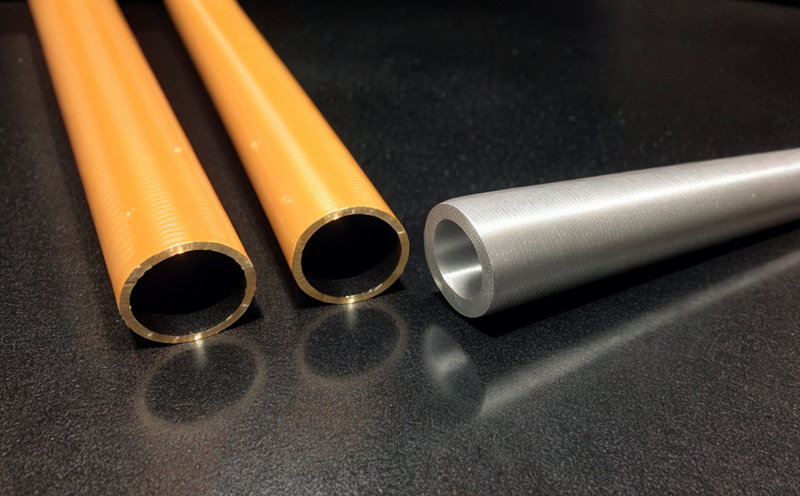ASTM D7078 V Notch Shear Testing of Composites Validation Method Development Test
The ASTM D7078 V Notch Shear Test is a critical method for validating the shear strength and fracture toughness properties of composite materials. This test has been widely recognized in aerospace and aviation industries due to its ability to simulate real-world loading conditions experienced by structural components during flight.
The V-notch shear specimen consists of two parts: the notched piece and the support piece. The notched piece is prepared using specific dimensions as per ASTM D7078, ensuring that it accurately represents the geometry needed for accurate testing. The test involves applying a load to the composite material until it fractures at the specified notch location.
This method plays an essential role in quality assurance and compliance with international standards such as ISO 12269-1, ASTM D7078, and EN 13459. It helps manufacturers ensure that their products meet stringent safety requirements by validating the integrity of composite materials used in aircraft structures.
The ASTM D7078 V Notch Shear Test is particularly useful for aerospace applications where lightweight yet strong materials are crucial. By providing precise data on material performance under shear stress, this test aids in optimizing design parameters and improving overall product safety.
For R&D engineers working with advanced composites, the ASTM D7078 V Notch Shear Test offers valuable insights into how different layers of composite materials behave when subjected to specific types of loads. Understanding these behaviors can lead to better formulation processes and more reliable final products.
In terms of specimen preparation, it requires careful attention to detail. The notched piece must be cut precisely according to specified dimensions outlined in ASTM D7078. Proper surface treatment is also necessary to minimize any irregularities that could affect test results.
When selecting the appropriate testing equipment for ASTM D7078 V Notch Shear Testing, laboratories should consider factors such as load capacity, accuracy levels, and ease of setup. High-precision machines capable of applying controlled loads while maintaining consistent temperature conditions are ideal choices.
The interpretation of results involves comparing actual test outcomes against established acceptance criteria defined by ASTM D7078. Compliance with these standards ensures that the material meets necessary performance specifications for aerospace applications.
It is important to note that while this test provides valuable information about composite materials' shear strength, it does not capture all aspects of mechanical behavior under different loading conditions. Therefore, additional tests may be required depending on specific application needs.
Benefits
- Ensures compliance with international standards such as ASTM D7078 and ISO 12269-1.
- Provides accurate data on composite materials' shear strength and fracture toughness properties.
- Aids in optimizing design parameters for improved product safety.
- Supports R&D efforts by offering valuable insights into material behavior under specific loading conditions.
- Minimizes risks associated with non-compliant products entering the market.
Industry Applications
| Application Area | Description |
|---|---|
| Aerospace Structural Components | This test is vital for ensuring the integrity of composite materials used in aircraft wings, fuselages, and other structural components. |
| Racing Cars and Formula 1 Vehicles | It helps evaluate the shear strength properties necessary for high-performance racing vehicles' safety systems. |
| Automotive Manufacturing | The test contributes to developing safer car interiors by assessing the durability of composite materials used in seats, dashboards, and other interior components. |
| Bicycle Frames | Ensures that bicycle frames made from advanced composites meet strict safety standards without compromising weight or performance. |





